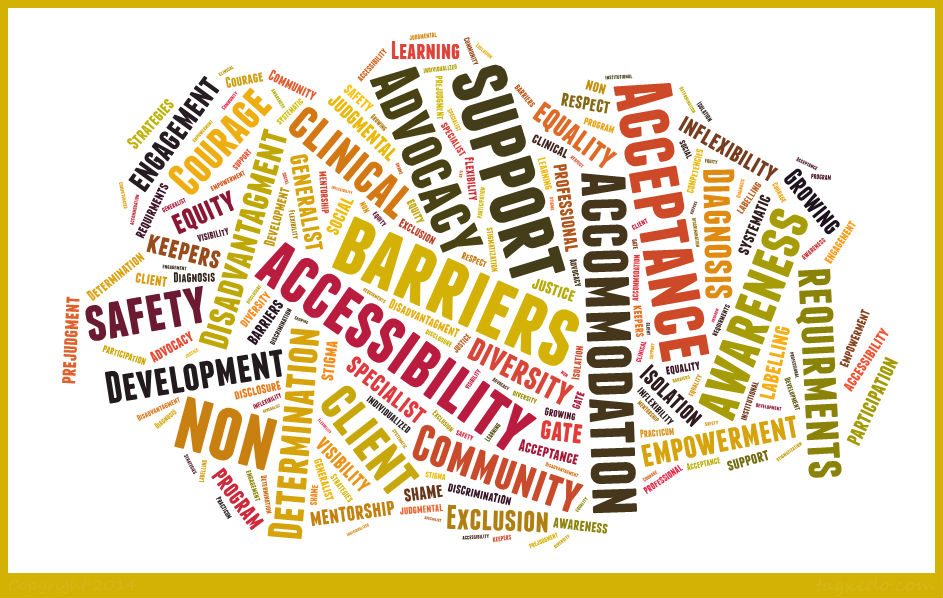The Inclusive Campus (IC) project aims:
- To increase the inclusion of people with disabilities in the workforce: improving quality of life, promoting social justice, and developing human capital
International Consortium for Inclusive Campuses (ICIC)
UBC’s IC project is part of the ICIC, which includes
- 6 countries: Canada, Ireland, Israel, Norway, Sweden, and the UK
- 6 disciplines: Medicine, Nursing, Occupational Therapy, Physical Therapy, Social Work, and Teacher Education
The goal of the ICIC: to design and evaluate programs that will increase the inclusion of people with disabilities in the workforce.
Theoretical Framework
The International Classification of Functioning, Disability, and Health (ICF) is the interdisciplinary and international framework by which this research is guided.
The Importance of ICIC
Enabling the participation of students with disabilities in higher education professional programs is critical and will increase their chances of entering the labour market.
Increasing the visibility of persons with disabilities in these professions will increase awareness, decrease stigma, and facilitate social change.
There have been worldwide changes in legislation and policy, and the development of access and support programs for students with disabilities; however, research demonstrates that there remain low enrolment and high first year dropout rates for individuals with disabilities.
Students with disabilities in health and human service professions (e.g., medicine, nursing, occupational therapy, physical therapy, social work, and teacher education) experience multifaceted and complex contexts that are not addressed by most research in the area.
Distinct from other post-secondary programs, health and human service professional students must deal with the challenges of academic learning and professional requirements while practicing in an environment that includes the multifarious issues related to client care and safety.
In partnership with students and clinicians, our global team of researchers are using their diverse research expertise to address these gaps in knowledge.

